第8章 II REBECCA'S RELATIONS(2)
She had not been able, however, to borrow her parents' virtues and those of other generous ancestors and escape all the weaknesses in the calendar.
She had not her sister Hannah's patience or her brother John's sturdy staying power. Her will was sometimes willfulness, and the ease with which she did most things led her to be impatient of hard tasks or long ones. But whatever else there was or was not, there was freedom at Randall's farm. The children grew, worked, fought, ate what and slept where they could; loved one another and their parents pretty well, but with no tropical passion; and educated themselves for nine months of the year, each one in his own way.
As a result of this method Hannah, who could only have been developed by forces applied from without, was painstaking, humdrum, and limited; while Rebecca, who apparently needed nothing but space to develop in, and a knowledge of terms in which to express herself, grew and grew and grew, always from within outward. Her forces of one sort and another had seemingly been set in motion when she was born; they needed no daily spur, but moved of their own accord--towards what no one knew, least of all Rebecca herself. The field for the exhibition of her creative instinct was painfully small, and the only use she had made of it as yet was to leave eggs out of the corn bread one day and milk another, to see how it would turn out; to part Fanny's hair sometimes in the middle, sometimes on the right, and sometimes on the left side; and to play all sorts of fantastic pranks with the children, occasionally bringing them to the table as fictitious or historical characters found in her favorite books.
Rebecca amused her mother and her family generally, but she never was counted of serious importance, and though considered "smart" and old for her age, she was never thought superior in any way.
Aurelia's experience of genius, as exemplified in the deceased Lorenzo de Medici led her into a greater admiration of plain, every-day common sense, a quality in which Rebecca, it must be confessed, seemed sometimes painfully deficient.
Hannah was her mother's favorite, so far as Aurelia could indulge herself in such recreations as partiality.
The parent who is obliged to feed and clothe seven children on an income of fifteen dollars a month seldom has time to discriminate carefully between the various members of her brood, but Hannah at fourteen was at once companion and partner in all her mother's problems. She it was who kept the house while Aurelia busied herself in barn and field.
Rebecca was capable of certain set tasks, such as keeping the small children from killing themselves and one another, feeding the poultry, picking up chips, hulling strawberries, wiping dishes; but she was thought irresponsible, and Aurelia, needing somebody to lean on (having never enjoyed that luxury with the gifted Lorenzo), leaned on Hannah.
Hannah showed the result of this attitude somewhat, being a trifle careworn in face and sharp in manner; but she was a self-contained, well-behaved, dependable child, and that is the reason her aunts had invited her to Riverboro to be a member of their family and participate in all the advantages of their loftier position in the world. It was several years since Miranda and Jane had seen the children, but they remembered with pleasure that Hannah had not spoken a word during the interview, and it was for this reason that they had asked for the pleasure of her company. Rebecca, on the other hand, had dressed up the dog in John's clothes, and being requested to get the three younger children ready for dinner, she had held them under the pump and then proceeded to "smack" their hair flat to their heads by vigorous brushing, bringing them to the table in such a moist and hideous state of shininess that their mother was ashamed of their appearance.
Rebecca's own black locks were commonly pushed smoothly off her forehead, but on this occasion she formed what I must perforce call by its only name, a spit-curl, directly in the centre of her brow, an ornament which she was allowed to wear a very short time, only in fact till Hannah was able to call her mother's attention to it, when she was sent into the next room to remove it and to come back looking like a Christian. This command she interpreted somewhat too literally perhaps, because she contrived in a space of two minutes an extremely pious style of hairdressing, fully as effective if not as startling as the first. These antics were solely the result of nervous irritation, a mood born of Miss Miranda Sawyer's stiff, grim, and martial attitude.
The remembrance of Rebecca was so vivid that their sister Aurelia's letter was something of a shock to the quiet, elderly spinsters of the brick house; for it said that Hannah could not possibly be spared for a few years yet, but that Rebecca would come as soon as she could be made ready; that the offer was most thankfully appreciated, and that the regular schooling and church privileges, as well as the influence of the Sawyer home, would doubtless be "the making of Rebecca"